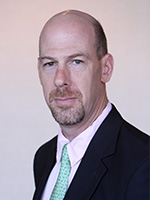
Marc Moss, MD
Diversity increases creativity, innovation, and healthy competition. The same is true in science and health.
In 2014, a study by two Harvard economists analyzed 1.5 million scientific papers, published over more than two decades. They found that papers with ethnically and geographically diverse authors, as well as more references, were more likely to be published in high-impact journals.
The ATS has recognized the value of diversity in respiratory medicine since long before 2014. International members have made up a significant percentage of our membership for decades. We have been fortunate to have extraordinary women and minority group members as presidents and other Society leaders. And for many years, the Diversity and Women’s Forums at the International Conference in celebration of the Society’s diverse membership have been cornerstones of the event.
To build on these successes, the ATS continues to institute new initiatives designed to make the Society even more inclusive. In 2002, we began awarding Minority Trainee Development Scholarships to increase the attendance of members of under-represented groups at the International Conference, and we recently doubled the number of travel scholarships awarded each year to 40.
Five years ago, then ATS President Patricia Finn challenged us to do more to make diversity and health equality part of the ATS’s organizational DNA. Dr. Finn recognized the power of diversity to transform not only our professional lives but the lives of our patients. She formed the Health Equality and Member Diversity Subcommittee, which later became a full committee chaired by Jesse Roman. By promoting diversity, the committee’s members believe they can also contribute to eliminating health disparities.
Last year, AnnalsATS published a report of an ATS/National Heart, Lung, and Blood Institute workshop on health equality led by Juan Celedón, then co-chair of the committee and now ATS Secretary-Treasurer. The report notes that although patients from under-represented groups disproportionately receive care from physicians who are also members of under-represented groups, only about eight percent of U.S. medical school faculty are themselves from under-represented groups.
In addition to publishing scholarly papers on diversity and health equality like the workshop report, the Health Equality and Member Diversity Committee has:
- Championed the inclusion of more minority group members in ATS assemblies and committees
- Encouraged assemblies to offer mentorship programs to all their members, especially those who are members of minority groups
- Recommended that in evaluating proposals for unrestricted grants from the ATS Foundation Research Program, reviewers consider how the research might address health disparities
- Convened an ATS/European Respiratory Society symposium on migrant and refugee health
- Sought to include a health-equality perspective in ATS International Conference symposia
- Established the ATS Health Equality and Diversity Fellow program.
The success of the ATS Health Equality and Diversity Fellow program is particularly noteworthy. To date, there have been three fellows, and all three have done remarkable things with the fellowship. One awardee has opened a lung screening program in a low-income neighborhood. Another is connecting low-income patients with legal representation to address detrimental environmental triggers. And the program’s first fellow, Sarah Lyon, who worked with the committee to help develop its strategy for addressing health equality and diversity during her fellowship, will become the new chair of the ATS Health Policy Committee in May.
There is much more that needs to be done, and questions remain to be answered about health disparities and the most effective ways of eliminating them. There are also many promising avenues for the kind of evidence-based advocacy that the ATS is known for. From the inclusion of minority group members in clinical trials to addressing the disproportionate burden of cigarette smoking and air pollution on minority group members to developing a pipeline of diverse future scientists and health care professionals, the ATS will continue to advocate for health care equality.
Though the ATS cannot change the issues of diversity and health disparities alone, the intellectual resources of ATS, and the experiences of its members, make the ATS an influential voice in the conversation. That voice is ever stronger thanks to the continued efforts that we as a professional society make towards an inclusive culture, and the recognition of health care equality as an ongoing priority.

